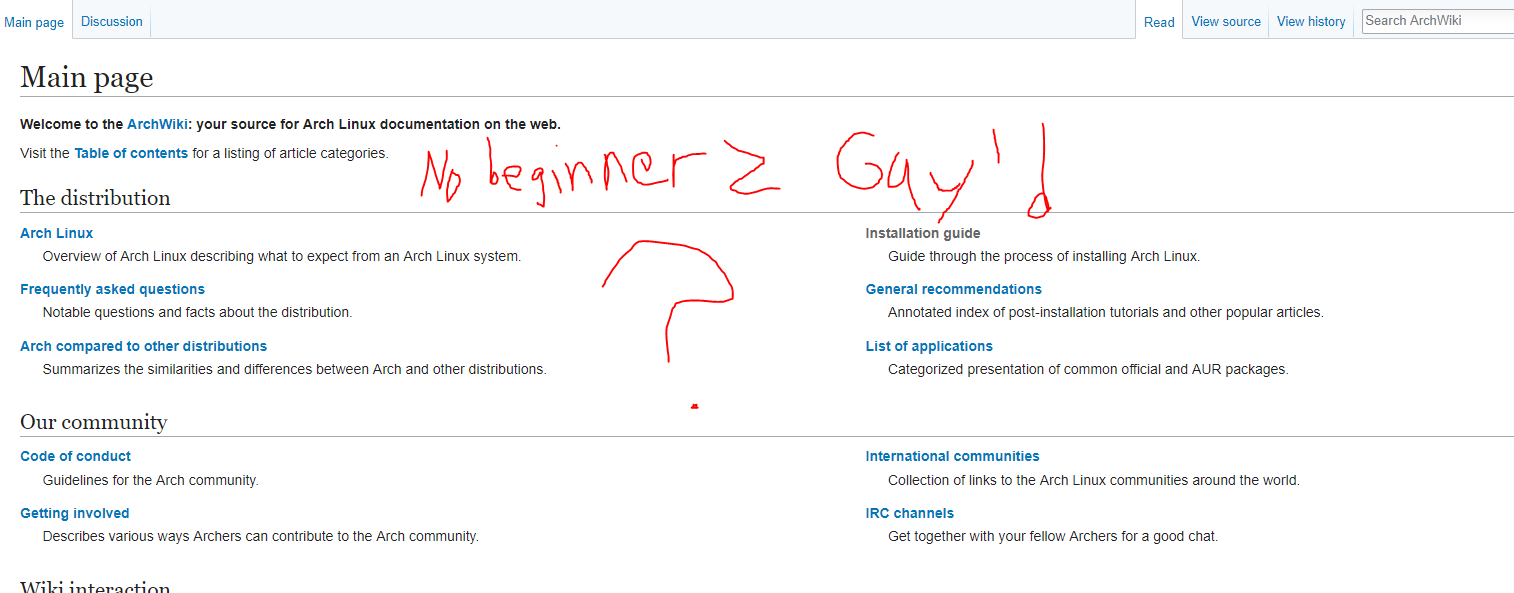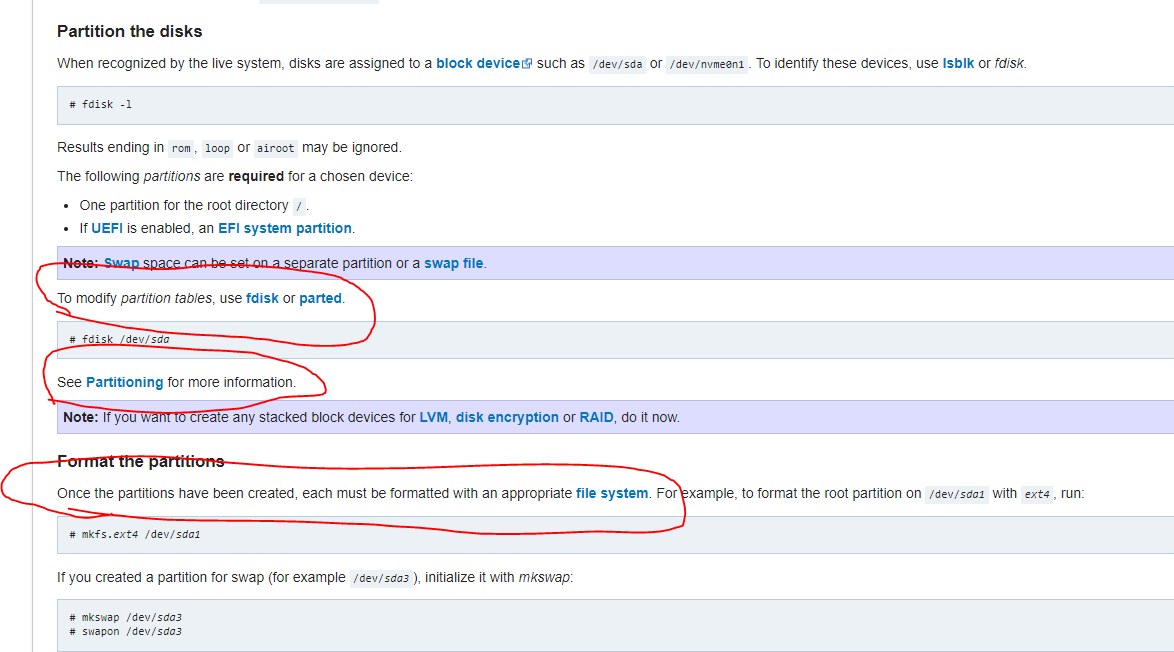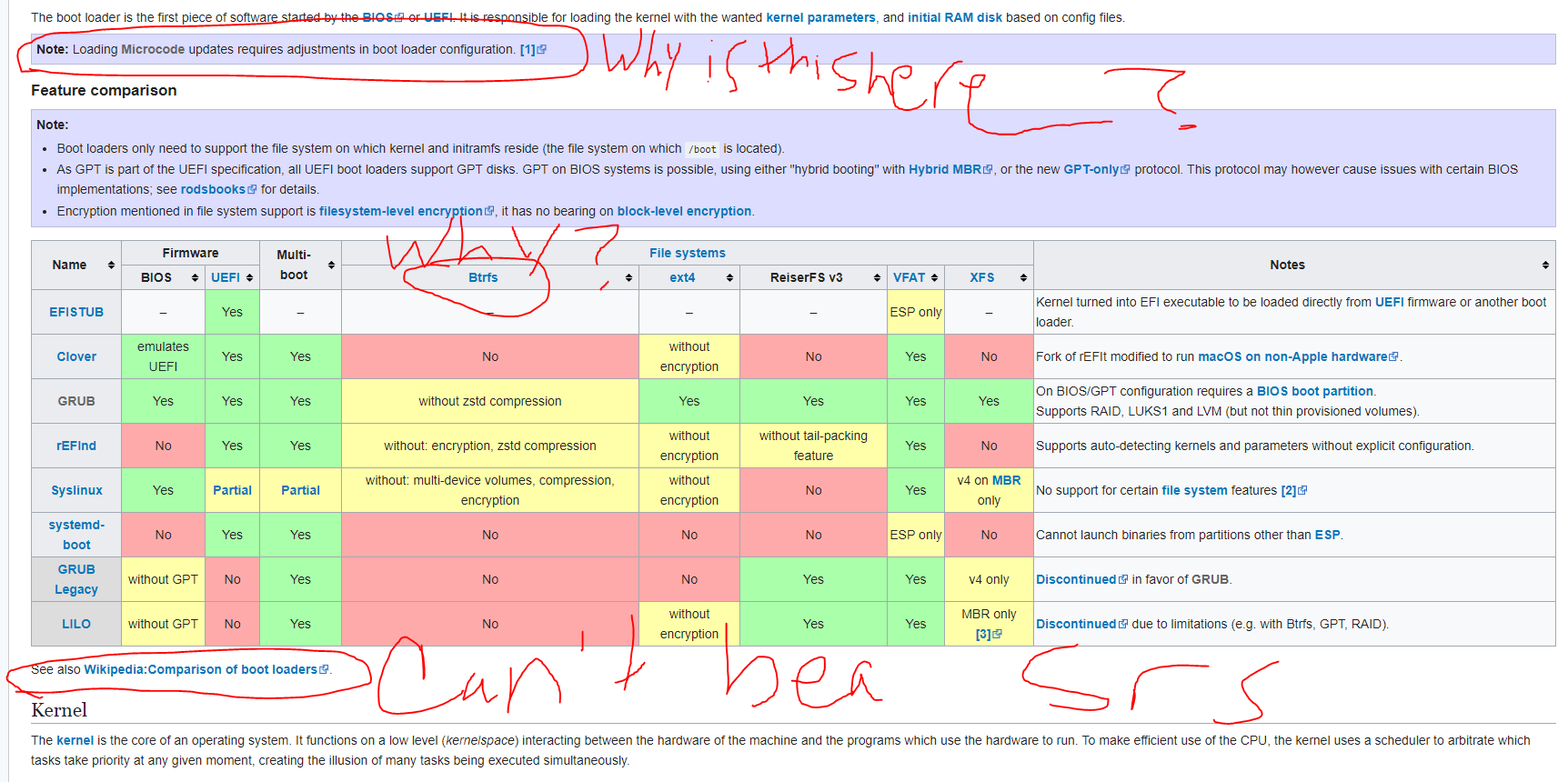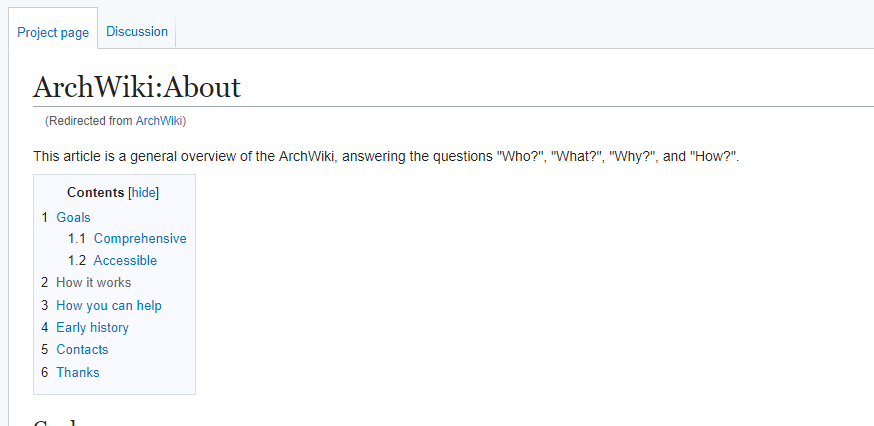It’s worth noting that experienced users know about The Beginner’s Guide and either know where to find it or have it bookmarked somewhere. New users will not know about this or where to find it.
Exhibit A
So, they’re left with clicking the Installation Guide seen to the right in the picture above.
Jesus Christ, the first three paragraphs and we’re bombed with information:
Exhibit B
Note the highlighted phrase. Should run. This language is present throughout the entire documentation. While I realize this isn’t an inherent problem with the wiki (it is if we’re going to call this a technical manual or technical guide), this leads common problems to be brought up to the community, which are far and beyond from the most helpful people on the Internet.
It should work does not mean it will work. Yet this is presumed across the board by the authors and users.
Moving on.
Once we make it past the information overload, if we still want to try, we’re met with this:
Item C
When you have a child and you’re out at a restaurant, do you say “Alright Timmy, what would you like?” or do you say “I’ll have X and Timmy will have the Club Sandwich”
If you’re a respectable parent and not a terrible human being you order for the child. Later, you learn what the child likes and give them options, but you don’t hold up the line with “Uhm… Uhm… Uhm… DO YOU HAVE CHICKEN FINGERS?!”
No you wretched little shit, we’re at Subway, you either eat fresh or you GTFO.
It would be more viable to just offer a partitioning scheme and provide a useful guide. But that’s not the Arch way. If someone suggests fdisk and you say “I like parted”, then you really don’t need this spelled out for you, do you?
However, people that have had the distro partition for them might just need an option to go for it. Really, the difference between fdisk and parted is minimal. I think this explains the illusion of freedom so many Arch users claim to have. Freedom is not the Arch way, simplicity is. And their wiki is anything but.
Last, I’ll spare you my monologue and diatribe for much longer, we have the bootloader segment:
Subsection D, Article 7, Paragraph 2
This person should be throat punched. A lot of those options aren’t viable. While I’m mostly joking about the Wikipedia bit, are they being serious? You have this cartooney graph cross referencing file systems and firmware but link to an external Wikipedia page that, while comprehensive, is largely irrelevant to a Linux operating system?
It tires me. I know my way around it and it is useful in some aspects, but good God is it atrocious for beginners. It is also undeserving of the term documentation.
Anyway, my $18 (inflation, two cents isn’t worth Arch these days).

 /j
/j







